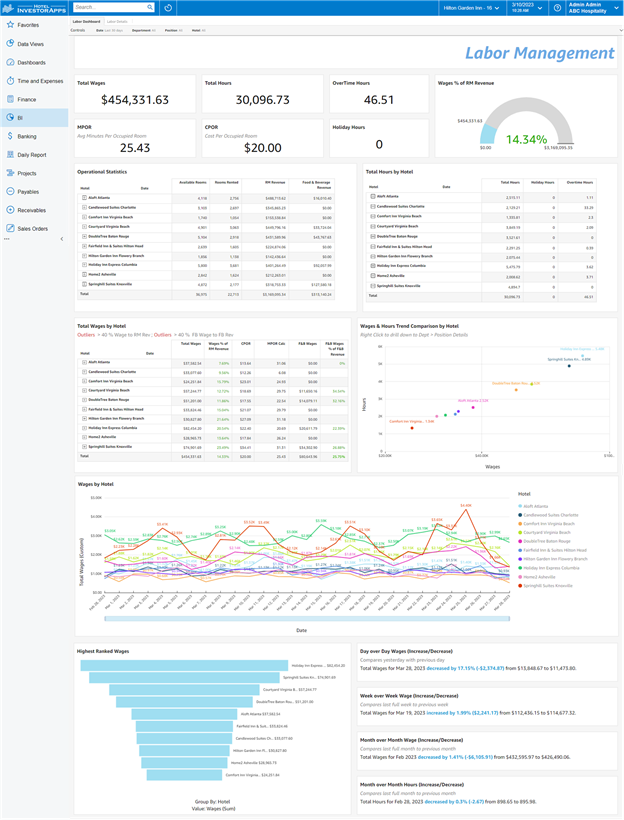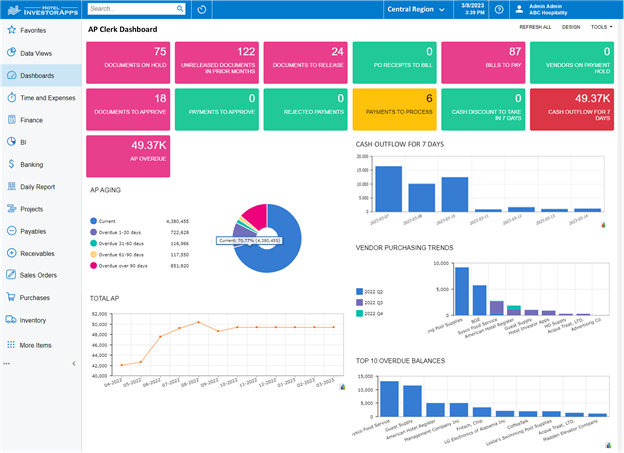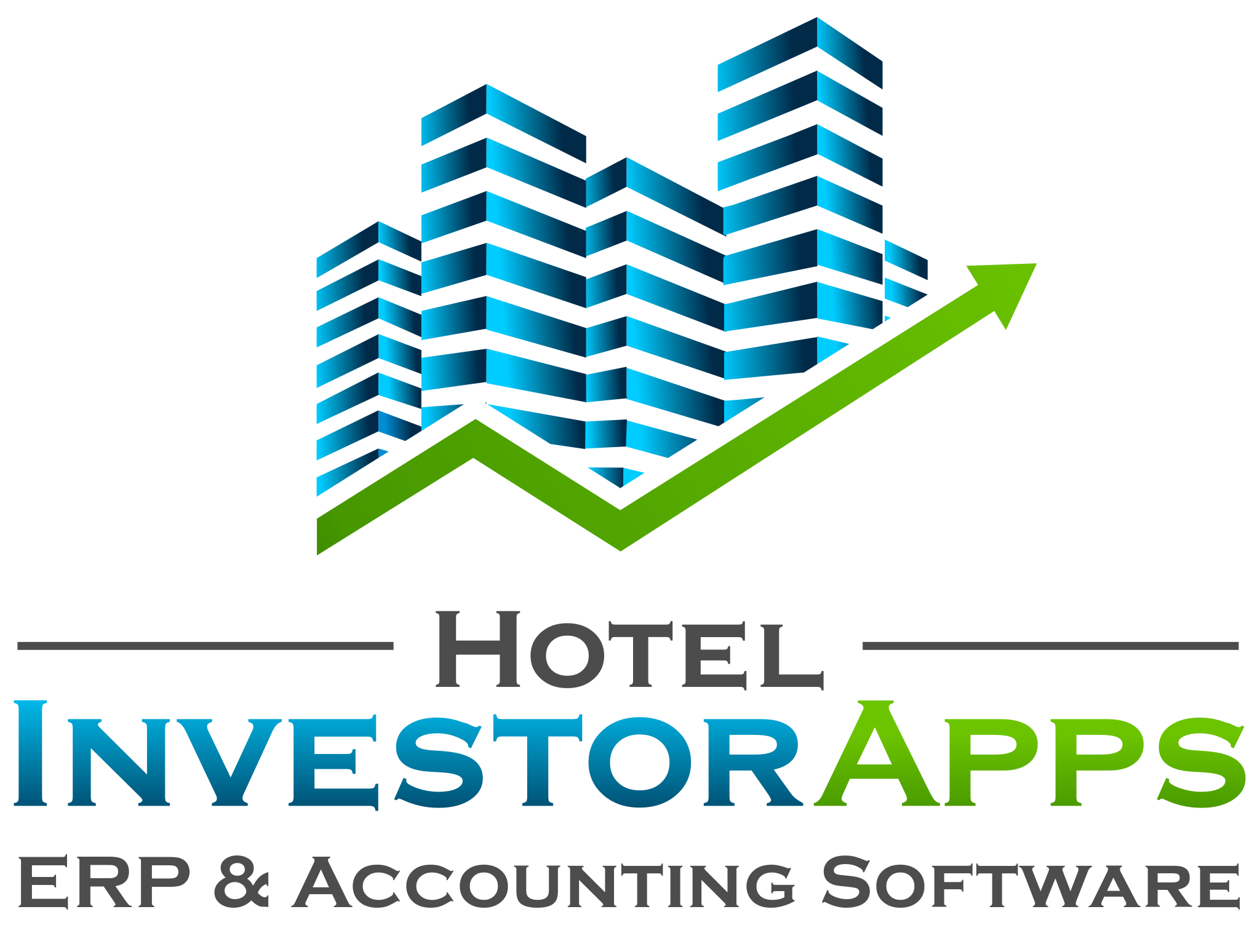As we navigate the fast-paced, data-driven world of today, the demand for real-time insights has become an undeniable necessity across various industries.
In the hotel industry, this need rings particularly true, especially when it comes to strategic financial decision-making. Whereas hoteliers have always relied on daily reports, now for an extra competitive edge, many hoteliers are turning to real-time reporting.
But how exactly can it enhance financial decision-making in the hotel industry? Let’s dig deeper and discover how this powerful tool transforms decision-making from reactive to proactive.
| Key Takeaways |
|
How Can I Leverage Real-Time Reporting to Make Financial Decisions Effectively?
With the continuous changes in consumer behavior, market trends, and operational costs, hoteliers need to be more agile in their strategic planning and day-to-day management. This is where real-time reporting comes in, and it’s brought about a significant shift in how the hotel industry operates.
Here’s how:
Revenue Management
Traditionally, revenue management has been a reactive process, with pricing decisions made based on historical data. While this does help identify trends and patterns, real-time reporting revolutionizes this approach, allowing for proactive, dynamic pricing strategies.
With constant access to room occupancy rates, booking patterns, and guest demographics, hoteliers can anticipate demand and adjust pricing in real-time to maximize revenue.
Similarly, real-time revenue data from other hotel services, such as restaurants, bars, or spas, can aid in assessing the performance of these offerings and making necessary adjustments.
For instance, let’s say there’s an annual conference that’s held near your hotel. You can reference historical data to compare and help you predict your room occupancy and set your pricing accordingly. However, if you were armed with real-time reporting, you’d be able to monitor booking patterns and gauge the surge in demand for rooms.
If the occupancy rate increases faster than usual, you can proactively raise your room prices to capitalize on this heightened demand. On top of that, if you notice that guests frequently use a specific service (like your hotel’s spa), real-time data can guide you to promote this high-margin service more aggressively.
Cost Control
In addition to revenue management, real-time reporting greatly aids in cost control, which is fundamental to maintaining profitability. This includes keeping a vigilant eye on operational expenses (like utility, labor, or maintenance costs) and your Cost of Goods Sold (COGS).
Real-time reporting provides immediate insights into the hotel’s operational efficiency, helping identify areas where expenses may be reduced without negatively impacting the guest experience.
For example, say your hotel has a regular Monday night event that typically attracts a large number of guests, and you schedule a significant number of staff members accordingly. However, once football season starts, you notice a consistent dip in attendance, so you need to adjust staffing levels.
Traditionally, it may take you a month or a quarter to compile reports, assess the situation, and make the appropriate changes. However, with real-time reporting, you can see the dip in demand almost instantly and adjust staffing accordingly.

Cash Flow Management
Effective cash flow management is key to the financial health of any hotel. Traditional cash flow management often relies on weekly, monthly or quarterly financial statements. But by the time they’re produced and analyzed, the information is often several weeks old (at best).
That’s never the case with real-time reporting. It gives you an up-to-the-minute view of the hotel’s cash position, including incoming cash from bookings and other services, bank balances, and outgoing cash for expenses such as payroll, supplies, and debt payments.
This real-time visibility can help hoteliers manage cash flow more effectively, ensuring that the hotel has sufficient cash to cover its obligations while also identifying opportunities to invest surplus cash.
For example, you might have a significant amount of invoices out to a few of your corporate clients while your payables are due to vendors soon. Instead of waiting on reports and scrambling to cover your vendors, real-time reporting could alert you to the situation, and you can take proactive steps to address it, such as negotiating extended payment terms.
This visibility lets you stay ahead of the game versus constantly playing catch-up with old data.

Capital Expenditures
While most hoteliers rely on past performance and historical data to make CapEx decisions, it doesn’t always cater to changing customer demands.
Real-time reporting and analysis can help identify profitable areas where a CapEx investment could yield higher returns. For example, if real-time data shows that your cash reserves are unusually high, you might decide it’s an opportune time to make that investment in whatever upgrades you had been putting off.
Tax Planning
Accurate tax planning is another area where real-time reporting can provide immense value. Instead of compiling and analyzing your tax information during tax season, real-time reporting allows you to monitor your tax situation and plan accordingly constantly.
For instance, suppose your real-time reports indicate that your hotel is heading towards a significantly profitable year, which could potentially push you into a higher tax bracket.
In a traditional setup, you might not realize this until it’s too late to do anything about it. But with real-time data, you could identify this situation early in the year and proactively explore tax planning strategies.
This might involve accelerating deductible expenses into the current year, making strategic investments that offer tax deductions, or exploring other tax credits or incentives you might be eligible for.
Make Smarter Decisions with a Robust Real-time Reporting System
As per the examples above, leveraging real-time reporting for financial decision-making provides a powerful tool for hoteliers. Having a constant and accurate understanding of your hotel’s financial performance gives you the insights you need to improve profitability and grow.
It also enables immediate response to trends and potential issues and helps in the strategic planning of long-term financial objectives.
And the best part? You don’t need to navigate this complex terrain alone. Our innovative solutions at HIA are tailored to help you take full advantage of real-time reporting. With role-based, real-time dashboards and complete customization, you can track any KPI you want—anytime, anywhere.
Plus, with our Business Intelligence tools, the system will automatically track and alert you of anomalies, so you’re immediately notified if something doesn’t go as planned. Check out how our system works here:
So why wait? Start the journey to optimal financial decision-making in your hotel business. Explore our solutions and see the difference real-time reporting can make.

Director of Marketing at HIA
Elisa Fritsch, Director of Marketing at Hotel Investor Apps (HIA), contributes 15+ years of sales and marketing experience from a wide range of corporate to start-up environments. At HIA, Elisa focuses on marketing strategy, content, and leveraging her hospitality industry knowledge to drive growth.










